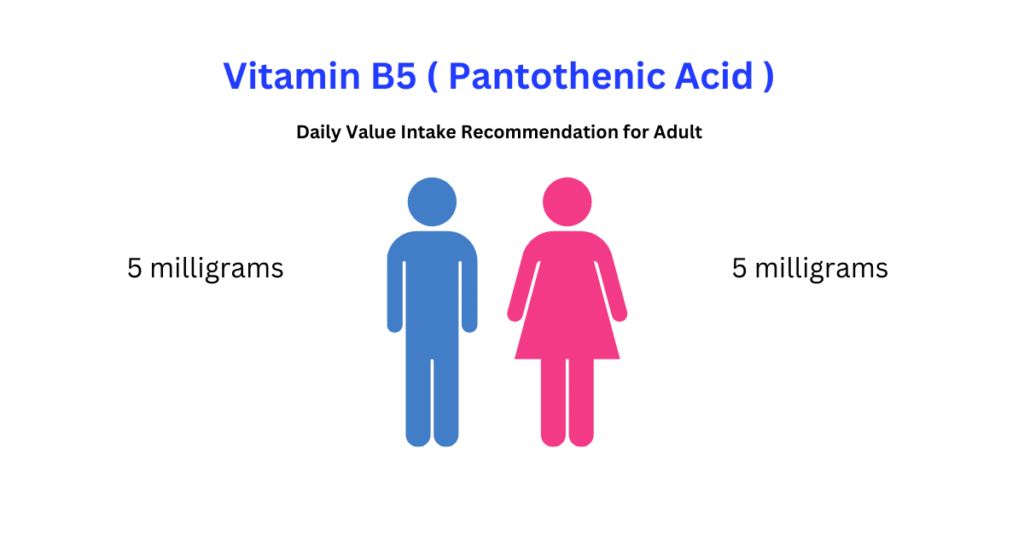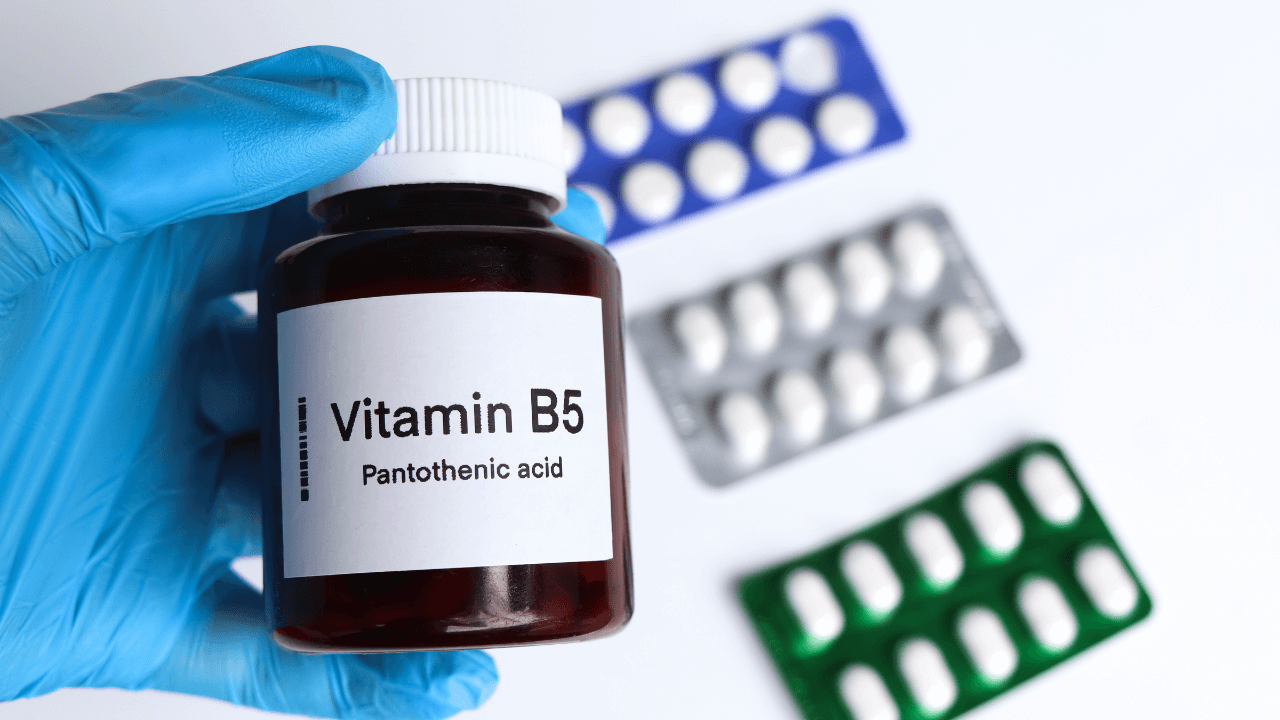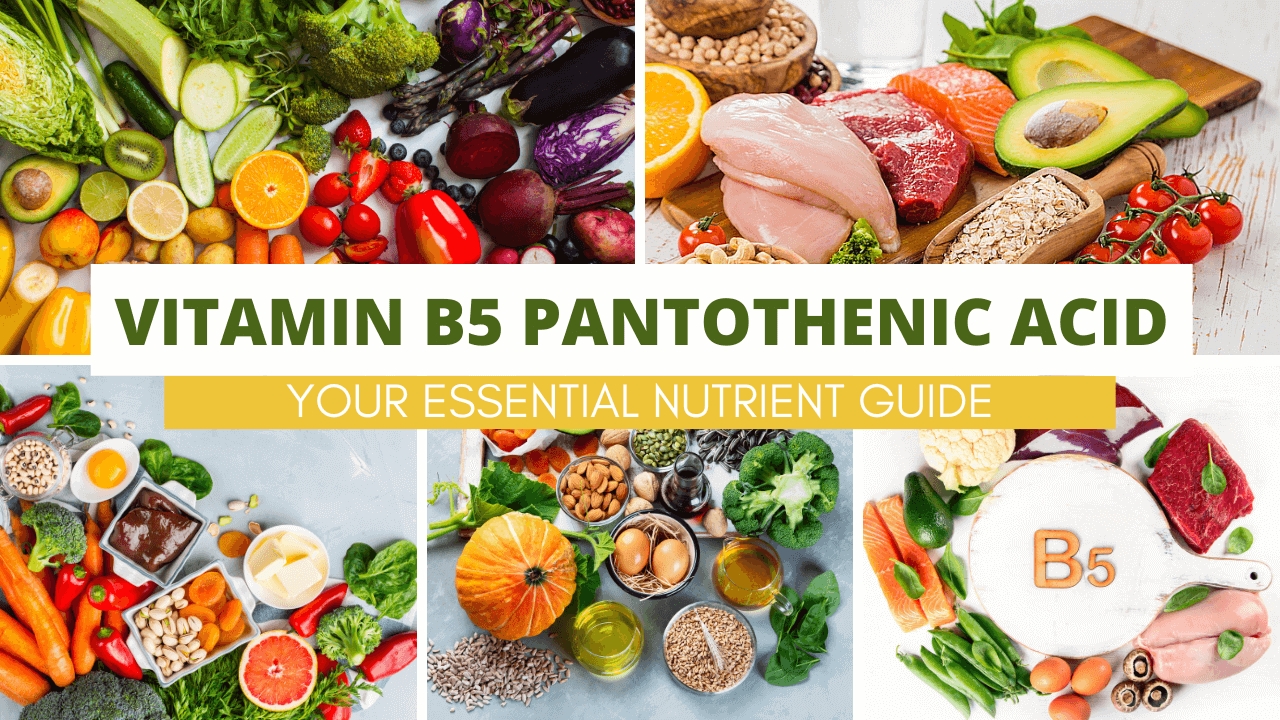Nestled within the family of B vitamins, Vitamin B5, or pantothenic acid, emerges as a crucial nutrient instrumental for our energy production and the smooth operation of numerous biological reactions. This unsung hero of the vitamin world is not just a cog in the metabolic machine; it also bears significant promise for areas like skin health, making vitamin B5 for skin a topic of growing interest. Whether through diet or a B5 supplement, ensuring adequate intake of this vital nutrient is key for maintaining a well-functioning system.
The Powerhouse of Energy Metabolism:
Pantothenic Acid Pantothenic acid is ubiquitous in our diets, yet it often goes unnoticed. It’s the fuel your cells need for synthesizing and metabolizing proteins, carbohydrates, and fats. With recommended daily intakes in place, your body’s supply of this vitamin is well-managed, but incorporating a rich variety of pantothenic acid sources is vital for optimal health.

Diverse Dietary Sources of Vitamin B5
A plethora of foods offer pantothenic acid, each serving as a building block for a robust nutritional regimen:
- Chicken breast (3 ounces, cooked): Approximately 1.2 milligrams
- Sunflower seeds (1 ounce): Approximately 2 milligrams
- Salmon (3 ounces, cooked): Approximately 0.9 milligrams
- Avocado (1 medium): Approximately 2 milligrams
- Lentils (1/2 cup, cooked): Approximately 0.4 milligrams
- Broccoli (1/2 cup, cooked): Approximately 0.4 milligrams
- Sweet potatoes (1 medium, cooked): Approximately 1.2 milligrams
- Whole-grain bread (1 slice): Approximately 0.2 milligrams
- Eggs (1 large): Approximately 1 milligram
- Milk (1 cup): Approximately 0.3 milligrams
Regularly including these pantothenic acid-rich foods in your diet is a simple strategy to fulfill your daily requirements.

Navigating Deficiencies and the Role of Supplements
While a pantothenic acid deficiency is a rare occurrence, its symptoms can be subtle yet impactful, leading to a general sense of fatigue and discomfort. Healthcare providers might suggest pantothenic acid or pantethine supplements for those who cannot meet their vitamin B5 needs through food alone.
Optimizing Absorption for Maximum Benefit
Fortunately, pantothenic acid is well-absorbed, making the most of its presence in your diet. However, it’s worth noting that alcohol can interfere with its levels, so keeping alcohol consumption in check is a smart move for preserving your vitamin B5 status.
You might be interested in: Unlock the Benefits of Vitamin B1 (Thiamine): Essential Sources and Health Insights
Conclusion:
Whether it’s for its metabolic roles or the burgeoning interest in vitamin B5 for skin, acknowledging the importance of pantothenic acid is a step forward in your health journey. Choose foods rich in vitamin B5 and consider B5 supplements when necessary to build an energized, resilient body ready for whatever life throws your way.






